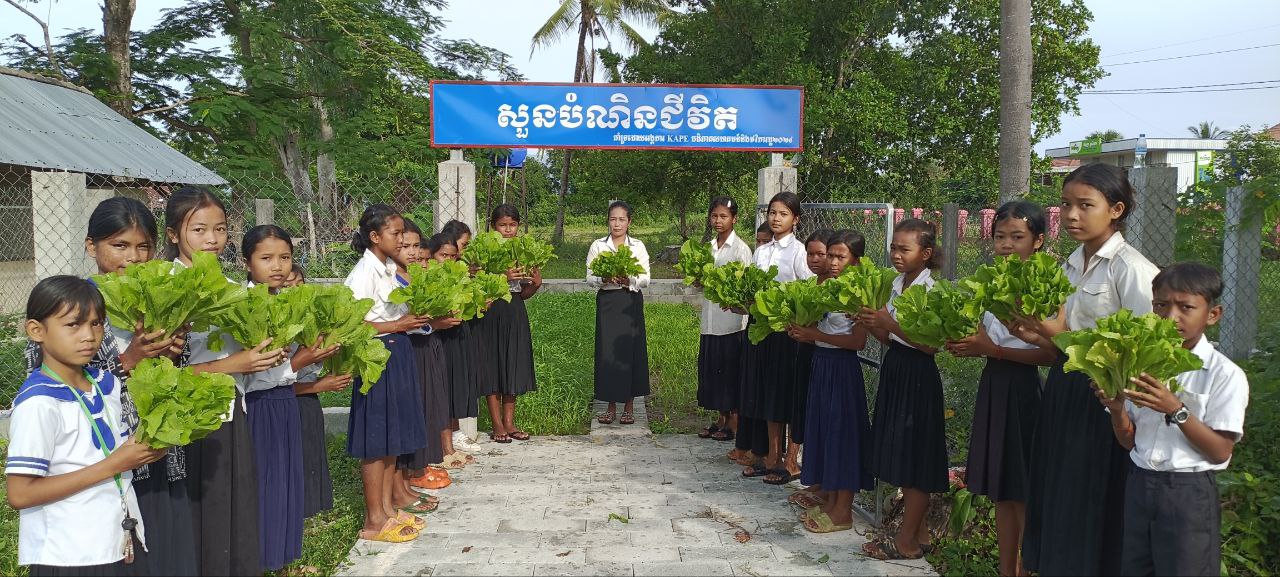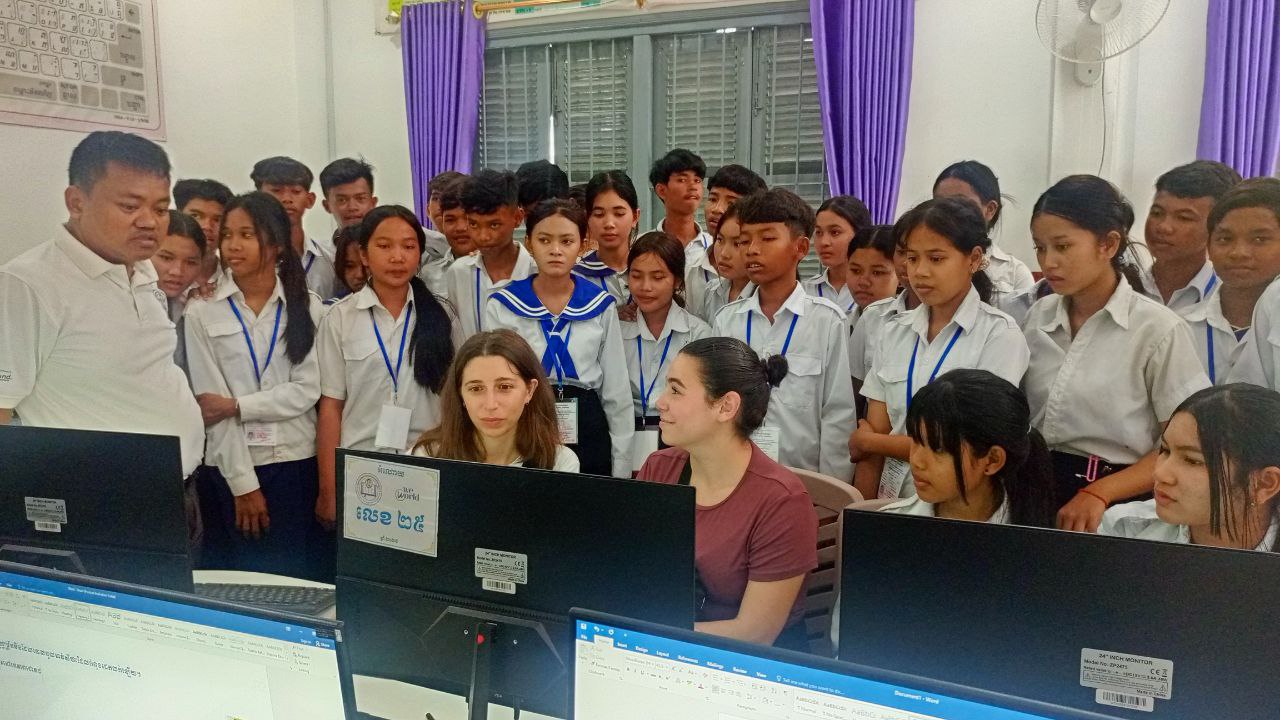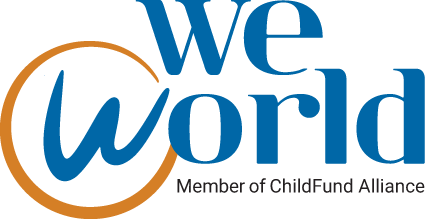Current Projects
Children's Learning, Access to Support, and Sustainability (CLASS) project
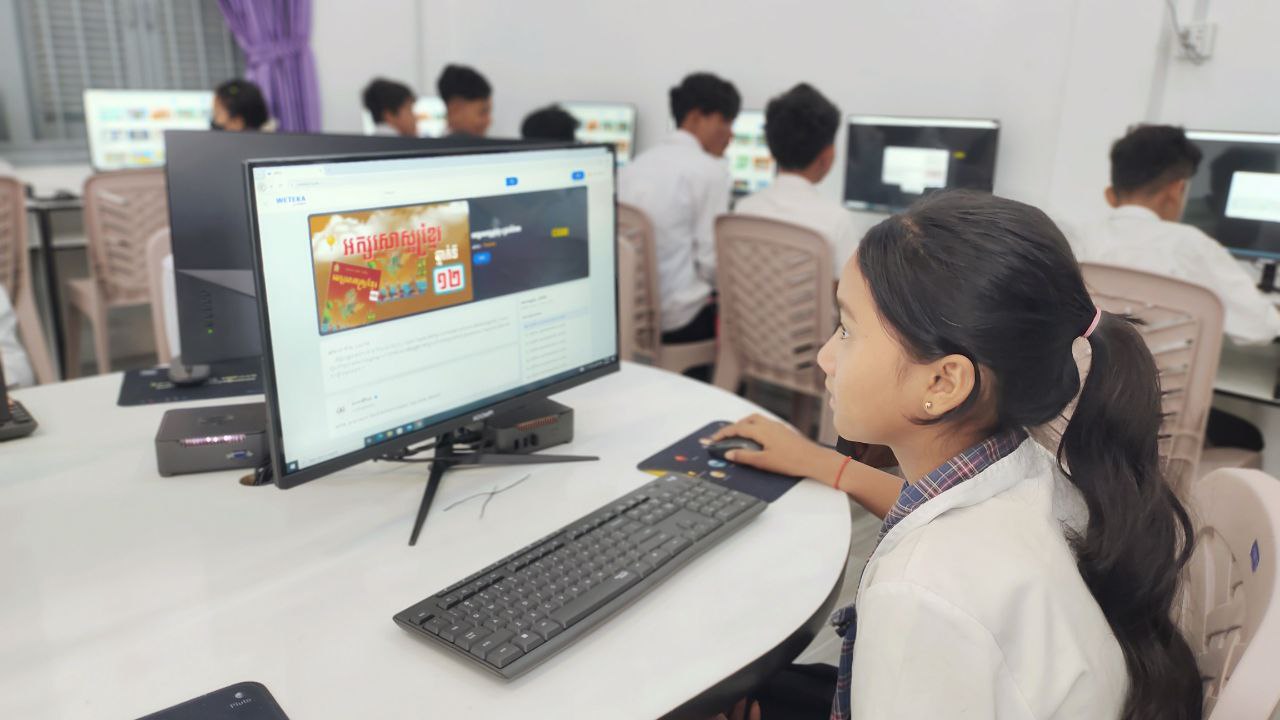 1. Project Profile
1. Project Profile
- Location: Svay Rieng, Prey Veng, Pursat, and Kampong Chhnang Provinces, Cambodia
- Duration: January 1, 2025 – December 31, 2027 (36 months)
- Budget: €740,000, fully funded by WeWorld
- Partners:
- Lead Agency: WeWorld-GVC, a foundation based in Milano, Italy, operating in Cambodia.
- Implementing Partner: Kampuchea Action to Promote Education Organization (KAPE), a Cambodian NGO based in Kampong Cham.
- Agreement Details: Signed between WeWorld (represented by Mr. Dina Taddia) and KAPE (represented by Mr. Sao Vanna) to support vulnerable communities, particularly children in schools with Learning Disability Support (LDS) needs.
2. Main Goal
The primary goal of the CLASS project is to enhance educational access, support, and sustainability for vulnerable children, particularly those with learning disabilities, in targeted Cambodian provinces. By combining WeWorld’s resources and KAPE’s expertise in school-based interventions, the project aims to:
- Improve learning outcomes and access to education.
- Strengthen community support systems for sustainable development.
- Achieve maximum impact through coordinated efforts, ensuring long-term benefits for the served communities.
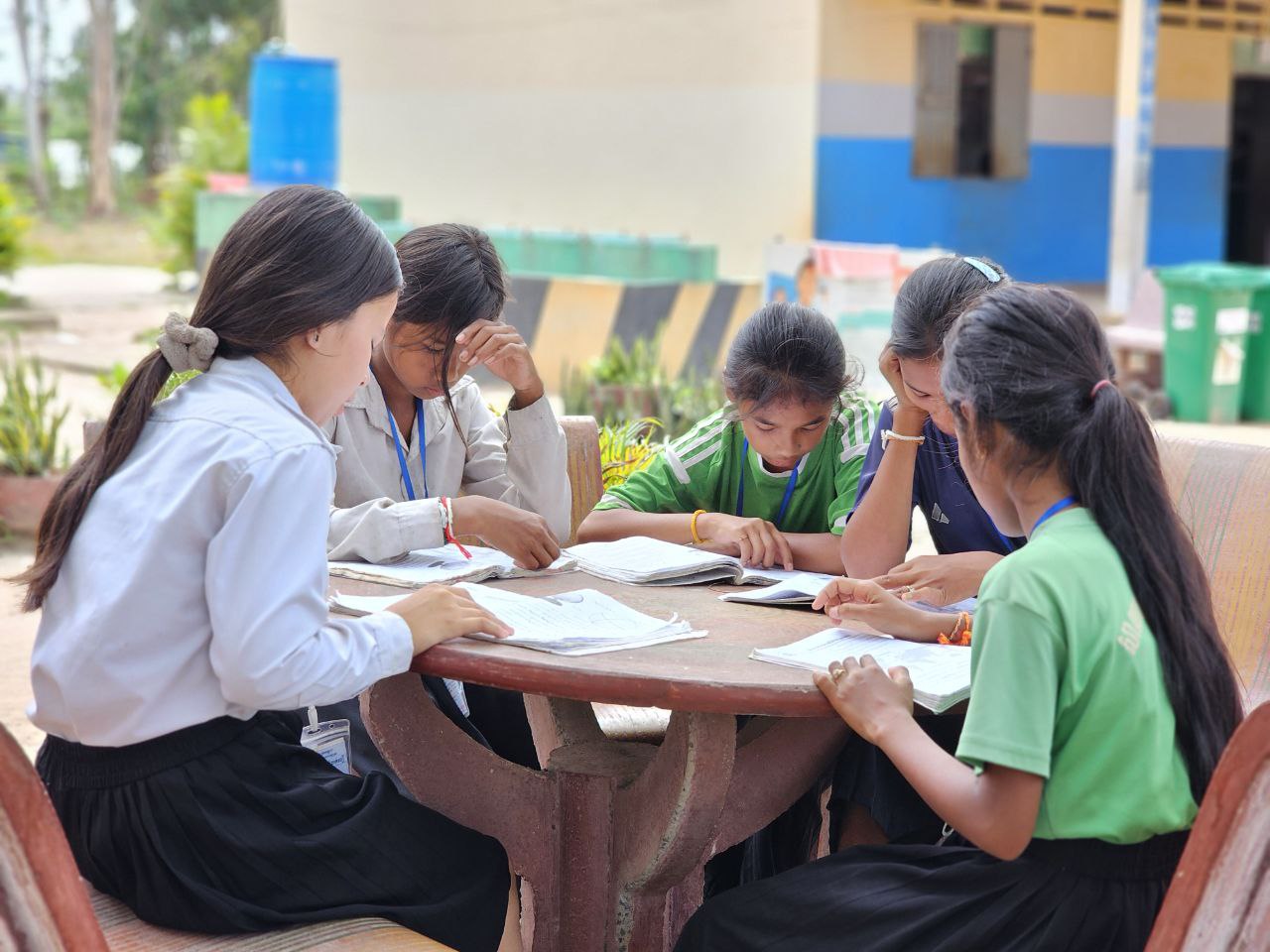 3. Project Update
3. Project Update
As of the agreement’s context (signed prior to the project start date of January 1, 2025), the project is in the pre-implementation phase. Key updates include:
- The agreement was formalized to outline roles, responsibilities, and financial arrangements between WeWorld and KAPE.
- A detailed project document and budget (Annex A and B) have been approved, setting the framework for implementation.
- Preparations are underway for the initial fund transfer (€112,500, 50% of the first-year budget) within 15 days of the agreement’s signing, pending KAPE’s fund request.
- No implementation activities have started, as the project is set to commence in January 2025.
4. Project Key Activities
While specific activities are detailed in the project document (Annex A, not provided), the agreement outlines the following key implementation aspects:
- Educational Interventions: KAPE will implement activities in schools with LDS children, focusing on improving access to quality education and support services.
- Community Engagement: Activities will involve mobilizing local communities to foster sustainable development and support for vulnerable children.
- Monitoring and Reporting: Regular monitoring through field visits, online meetings, and annual in-person meetings, with quarterly financial and narrative reports to ensure transparency and accountability.
- Capacity Building: Identification and training of project staff to ensure effective, efficient, and high-quality activity implementation.
- Resource Management: Procurement of necessary supplies and services following WeWorld’s guidelines, with strict financial oversight and asset management.
- Visibility and Communication: Coordinated efforts to promote the project through WeWorld’s channels, adhering to visibility guidelines.
5. A Glance into the Future
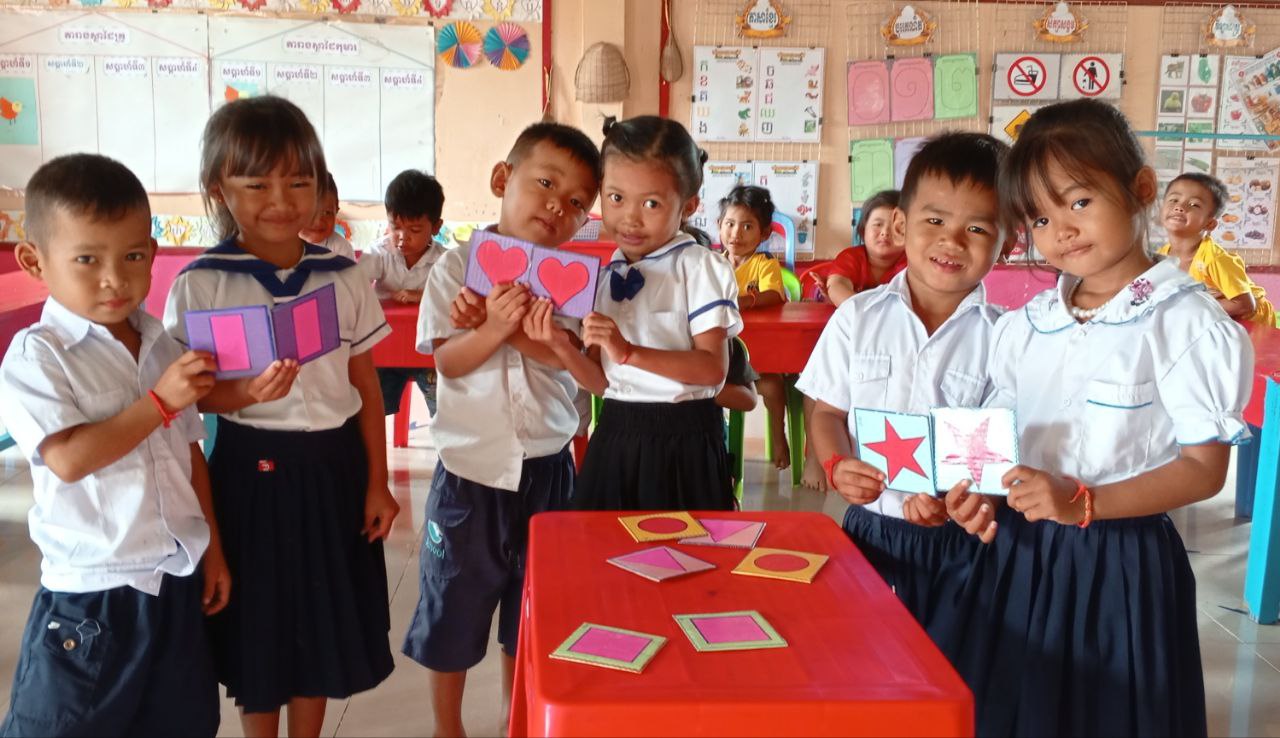 Looking ahead, the CLASS project is poised to make a significant impact on educational and community development in Cambodia:
Looking ahead, the CLASS project is poised to make a significant impact on educational and community development in Cambodia:
- Expected Outcomes: By 2027, the project aims to enhance educational access and support for LDS children, strengthen community resilience, and establish sustainable systems for ongoing support.
- Scalability: Successful implementation could lead to project extension (subject to mutual agreement) or replication in other regions, leveraging lessons learned.
- Sustainability: The focus on community involvement and capacity building ensures long-term benefits, with KAPE’s local expertise anchoring interventions.
- Challenges: Potential risks include exchange rate fluctuations, delays in reporting, or unforeseen events. The agreement’s robust monitoring, audit provisions, and flexibility for amendments aim to mitigate these.
- Legacy: The project’s emphasis on ethical standards, data protection, and visibility will enhance WeWorld and KAPE’s reputations, fostering trust and potential for future collaborations.
Here are the products of the student achievements harvested from their biogarden after
they grew. The vegetables could be sold and used to make a cook.
6. Donor
- Donor: WeWorld-GVC
- Support: WeWorld supervises activities, approves reports, and provides technical support to resolve critical issues, ensuring alignment with project objectives.
Inspirational Message:
Together, We Are Building a Brighter Future for Cambodia’s Children!
We stand at the dawn of an incredible journey with the Children's Learning, Access to Support, and Sustainability (CLASS) project! Through the unwavering partnership between WeWorld and KAPE, we are igniting hope, empowering dreams, and transforming lives. This is more than a project—it’s a movement to uplift the most vulnerable, unlock the potential of every child, and create sustainable change that will echo for generations.
With your support, we are building schools where knowledge thrives, communities where every voice is heard, and futures where no child is left behind. Together, we are fostering education that opens doors, nurtures creativity, and builds resilience. Your dedication, passion, and belief in a better tomorrow make this possible.
Let’s unite our hearts and hands to make CLASS a beacon of opportunity. Every step we take—every lesson taught, every smile shared—brings us closer to a Cambodia where every child shines. Join us in this mission, and together, let’s create a legacy of learning, love, and limitless possibilities!
117
Preschool(s)
178
Primary Schools
207
High Schools
2
Higher Education Institutions
163,072
Students
4,487
Teachers/Directors
5,362
Stakeholders



